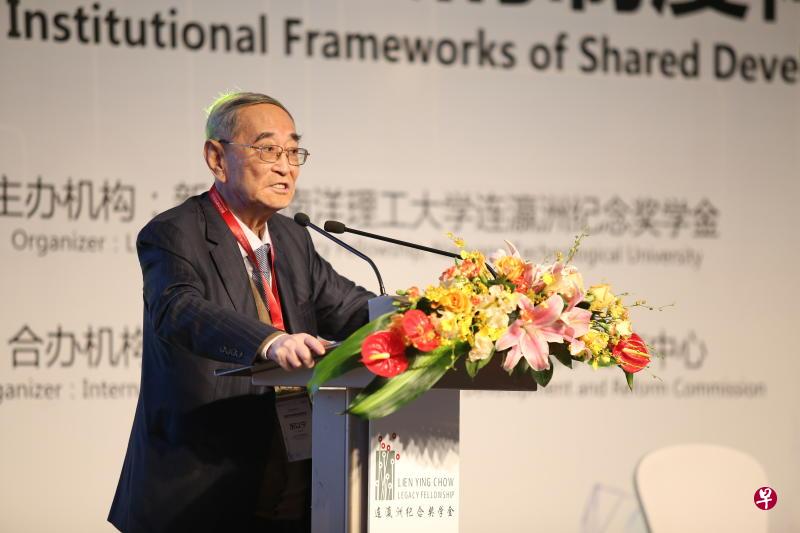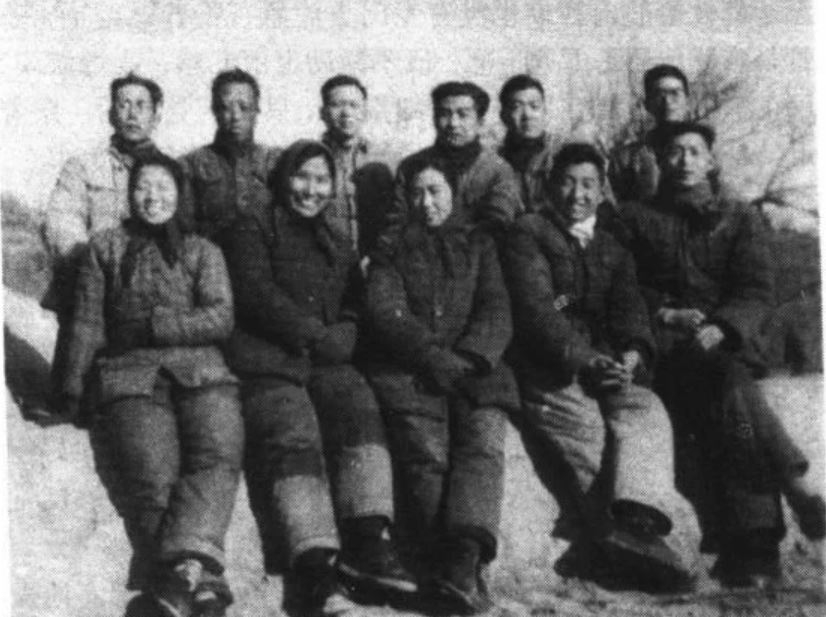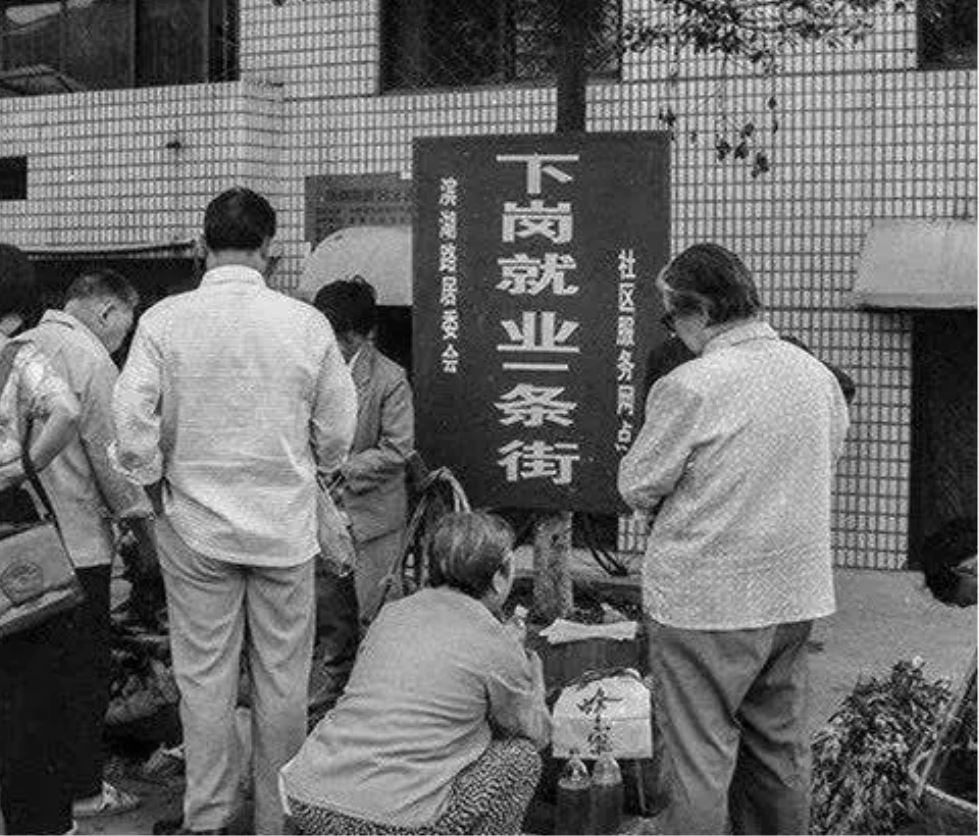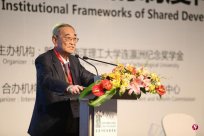
Li Yining, a famous Chinese economist, on February 27thDeath.Among the young people, there may not be many who are familiar with him, but no one knows the disciple of Li Yining, the Prime Minister of the State Council of China.
Li Yi Ning Tao Li Mantianxia, students are all over the three circles of schools and business.In addition to Li Keqiang, there are former Chinese vice chairman Li Yuanchao, former leader of the national housing reform research team Meng Xiaosu, Lu Hao, director of the Development Research Center of the State Council, and Gong Fangxiong, managing director of Morgan Chase China.Students are pivotal characters in politics and business. It can infer that Li Yining is a scholar who can affect China's economic decision -making.
His most humane achievements are to put forward the reform of the joint -stock system of China and promote China's reform and opening up.The establishment of the Shenzhen Stock Exchange and the Shanghai Stock Exchange is inseparable from Li Yining's contribution.
Time and sad early experience
Like many Chinese intellectuals who have experienced turbulent years, Li Yining was deeply tortured in political movements such as "anti -right" and "Cultural Revolution" in the early years.Although such experiences are twisty and sad, it also makes him gradually clarify his historical mission.
Li Yining entered the Department of Economic Department of Peking University in 1951. After graduation, he stayed in 1955 to teach in 1955.His university has been in a period of fierce conversion of ideas and education systems for four years.In the past, Chinese economics was mainly Western economics. At that time, socialist economics with Soviet political economics was established. The internal and vigorous ideological transformation movements of the Department of Economics of Peking University were established.
Li Yining won the love of the famous scholars such as Chen Yisun, Luo Zhiru, Zhao Naiyi, and Chen Zhenhan.These professors were early founders of Chinese economics. They all studied in famous Western universities such as Harvard and Colombia, but in the political atmosphere at that time, they were regarded as "old antiques".In 1957, Mao Zedong, then the then top leader of China, launched a political activity of "Daming Dai". A large number of professors and students Peking University were severely criticized in the subsequent "anti -right" movement.
In 1958, Li Yining was the object of internal control of Peking University and was put into the labor transformation of Zhaitang, Ximen Tougou, Jingxi.In the society at that time, blindly pursuing publicization and destroying rural production, and the country was seriously lacking in the countryside.Although Zhaitang belongs to Beijing, the supplies are very scarce, and Hebei has been hungry dozens of miles away.The two -year decentralization life allowed Li Yining to gradually see the tranquility brought to the rural areas at the time.Soon after the labor transformation was over in 1959, he continued to exercise one after another.

Ten years of catastrophe broke out in 1966. Li Yining and his family lived with a humble buckle in 20 square meters. They were copied three times by the Red Guards.Due to the study of Western economics, Li Yining was deducted on the hat of "Western bourgeoisie academic agent". In addition to being criticized and corporal punishment, he was also detained in Tai Pingzhuang, Changping to lose personal freedom.In 1969, in the new round of labor renovation, Li Yining went down to the farm on the shore of Poyang Lake, Jiangxi, and engaged in labor for more than 12 hours a day.
In the next eight years, he was continuously sent to Miyun, Daxing, Tongzhou, and Zunhua, Hebei to receive labor re -education in Beijing.From graduating in 1955 to 1977, he returned to Peking University. In the 22 years of years, Li Yining continued to be in the exercise and repaired.In the tranquility, he risked to complete the translation of more than 2 million font economics masterpieces and materials.
A wave of shares
In the early 1980s, China, which had just stepped out of the Cultural Revolution, was waiting for it. The biggest problem was the employment of urban residents.A large number of knowledge youth who returned to the city after going up the mountains and the countryside urgently needed to find a job.At the National Labor Employment Conference hosted by Vice Premier of the State Council in 1980, Li Yining proposed a shareholding reform.
He said that joint -stock enterprises are private fund -raising. They can absorb more workers employment without using national investment.This is the first time at a high -level meeting.This view is not accepted by mainstream.Enterprise forms that are born in western capitalist countries are regarded as "floods beasts" that many people are subverted by socialism.Focusing on whether the joint -stock system is "capital" or the surname "society", there has been fierce controversy in the academic community, and Li Yining has received great political risks.
He firmly believes that the price reform that was also discussed at that time was only to create an environment that is conducive to the development of the commodity economy. The reform of the joint -stock system can make enterprises pay more attention to profitability and losses, and truly involve efficiency, interests, stimuli, responsibility and motivation.From 1984 to 1986, Li Yining, who was over half a year old, ran all over the country, gave a lot of speeches, wrote a lot of articles, promoted the joint stock system, so he won the title of "Li shares".
On the question of how the urban economy reform, there was differences in the economics community at that time.One point is that price reform should be put first.Another view is the reform of corporate property rights proposed by Li Yining.The price reform school occupied the upper hand in the early days. It was not until the failure of the "price break" in 1988 that the Chinese government and the economics community reinstated their attention back to ownership reform.Later, in the early 1990s, Li Yining's initiative was finally implemented.The Shenzhen Stock Exchange and the Shanghai Stock Exchange were established in 1990, and state -owned enterprise shares were publicly sold in the market.As the highest leader Deng Xiaoping's speech was pushing reform and opening up at the time, the Chinese economy under the reform of the joint -stock system began to take off.
From "Li shares" to "Li Rich"
It is undeniable that the original intention of the shareholding reform is good, but some scholars have pointed out that due to lack of supporting facilities and subsequent guarantees,The price of more than 30 million laid -off workers was unemployed, her life was embarrassed, and she was forced to move towards society.

What has even caused Li Yining to be questioned by the outside world is that he had received corporate gift shares during his time as a state -owned enterprise reform consultant.This has made him one of the richest economists in China in the 1990s, and the outside world calls him "rich".
In 1999, an article on the inside story of the Li Yining family became rich on the Chinese network, listing Li Yining's family members, family wealth status and related characters, and accused the Li Yining family converging huge wealth through various means.After the Xinhua News Agency's Watch Oriental Weekly reported the incident, the storm gradually turned.Until 2007, Hong Kezhu, a representative of the National People's Congress of China, publicly criticized Li Yining at the "two sessions" (the National People's Congress and the National Committee of the Chinese People's Political Consultative Conference), saying that the Li Yining family made money in the stock market.
Li Yining and his son Li Wei subsequently responded publicly and announced the public apology statement of looking at Oriental Weekly.The main content of Oriental Weekly reported that the main content was originally from a magazine in Hong Kong. The magazine has been recognized by the court as a defamation and a compensation for compensation for the court. Looking at the Oriental Weekly, it also apologized to the Li family.
For the huge wealth of Li Yining, some people believe that after the reform of the state -owned enterprise's joint -stock system, many of the early Chinese wealthy people were generated from the reconstruction of the joint -stock system.The collective and state assets are transformed through rapid property rights, and property rights are based on their own, causing national assets to lose.Li Yining is a member of the vested interest group.
The supporters believe that the China Banking Regulatory Commission, the Securities and Futures Commission, the Central Discipline Inspection Commission, and the Supervision Department did not make legal disposal of Li Yining. I believe that the first barrel of Jinyuan of the Li family is in legal stock investment.Xia Yeliang, a professor at the School of Economics of Peking University, said that the saying that Li Yining borrowed its shareholding system transformation and issued a fortune, "objective evaluation", scholars should not use knowledge to become rich should not be criticized by the outside world.
The discussion of Li Yi Ning Gong continued, but it is undeniable that he had a huge impact on the reform of the Chinese economic system. In the process, he paid a lot of effort and had huge political pressure and risks.
In 1985, the most intense controversial controversy in the reform of the joint -stock system, Li Yining wrote the words "The wild no one is not the way, and there is a bridge in the village with a stream".It means that there is no way to go in the wild in the wilderness. As long as there is a stream around the village house, the bridge will definitely build a bridge across the stream.In the contemporary poetry, this word may not be able to comment on the masterpiece, but outlines the virginity of the reformers to the world.



